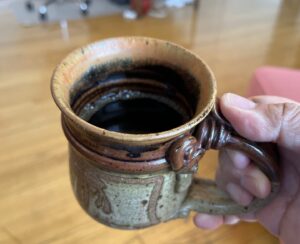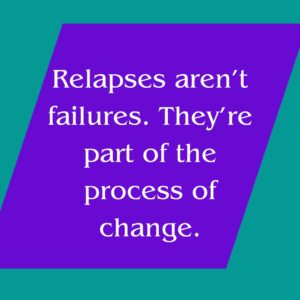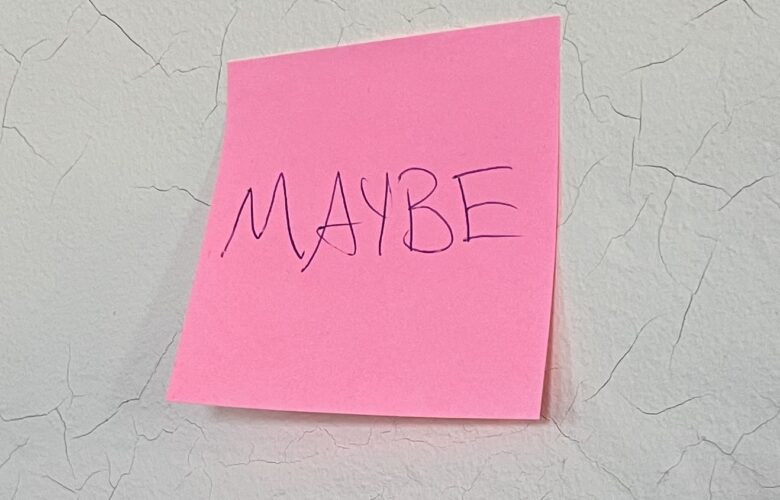After getting a diagnosis last year of prediabetes, I cut all sweets from my regular diet, out of pure fear. I didn’t know it wouldn’t last. I thought finally — at the age of 56 and after 28 years of trying to kick the sugar habit – I’d found the motivation I needed to never buy another snack cake or cookie. I was completely wrong.
With drastically reduced sugar intake, I gained energy, reduced hunger and lost weight. But life stress had me back on the sweet stuff by Halloween. After reading a book about reversing cognitive decline in December, I went back off the sugar habit, but when I got the flu over New Year’s weekend, I wanted comfort food. The flu hit again at the end of January and wanted more comfort food.
And that was it. I was back on my daily sugar habit.
Because of my lifelong tendency to hate myself, it was too easy to decide I’m a loser who can’t even kick sweets when there’s the possibility of diabetes. Diabetes, for god’s sake. The disease wouldn’t just shorten my lifespan. It could cause real problems with vision. It might affect my feet and mobility. And, of course, there would be the never-ending managing of a chronic condition that would include obesity (many with diabetes aren’t obese, but I would be). How could cookies be worth risking all that?
Despair piled on self-loathing and the sugar eating continued through the winter and into the spring. My energy and mood declined. I put back on some of the weight I’d lost. I felt terrified that I’d never be able to change my habits.
Today I’m meeting a friend for brunch. Since I won’t be eating that meal til around 11:00 a.m, earlier I made myself a cup of coffee and had it with an apple and some peanut butter. I ignored the cookies I have in a drawer, waiting for me. I wonder if I’ll be back for them later. I wonder if I’ll order pancakes. I wonder how much attention I’ll pull from conversation to debate myself over what I’m going to order.
cookies I have in a drawer, waiting for me. I wonder if I’ll be back for them later. I wonder if I’ll order pancakes. I wonder how much attention I’ll pull from conversation to debate myself over what I’m going to order.
Last Saturday, feeling like a loser, I went to my annual physical exam. A year ago my A1C (normal range is 5.7 or below) was at 6.2. By October I got it down to 5.8. Now I’ve learned it’s back up to 6.0. I’m still not diabetic, but I’m heading there.
I would have felt completely hopeless when I got those results, except for two things that given me a little bit of hope. The first is a video I found about the nature of bad habits. Say what you will about the evils of algorithms, but sometimes YouTube serves up what I need.
According to this video it’s the nature of bad habits to come back just as you settle into your new life without that habit. You think everything is going well, and just when you think it’s behind you, you fall back into it. This is just what happens.
I believed that going for so many months without a daily sugar habit meant I was done with it. But apparently getting the prediabetes news was only the initial motivation. I needed more than that to break a habit. Reading the cognitive book helped, but I needed more than that, too. More importantly, this video told me relapses aren’t failures; they’re part of the process of change.
In fact, the vlogger says the biggest mistake isn’t relapsing: it’s what people do after the slip: they think the problem is them, that they’re fundamentally flawed, and they get very discouraged. I totally did that. Also, I thought I needed to find the piece of information that would stop my behavior, but it turns out habits aren’t about information (if they were, the warnings on the cigarette labels would have ended smoking). Breaking a habit is about repeatedly, intentionally changing the automatic, unthinking behavior you’ve been doing for a long time.

The other thing I’ve found is an even better video about discipline. It drives home the point that discipline is a learned behavior, not a quality you have to be born with. The vlogger stresses that you have to take your own orders seriously, build your trust in yourself by starting small, and actively hold yourself accountable consistently — for maybe even a year — until whatever habit you’re trying to put in place becomes an automatic behavior. Start small, with a goal you 100% know you can accomplish, and go from there.
Start small. Duh. I knew that strategy worked for goals like exercise. Why hadn’t I applied it to sweets? So instead of slamming myself with “No sweets, ever” or even “No sweets except once a week,” I started a week ago with what I think is the easiest sugar-related goal I can definitely do: “No sweets unless it’s really exactly what I want to eat in that moment.” This targets the automatic eating I do just because some sugary treat is available and convenient (or because everyone else is digging in).
A week in, it’s going well. This new practice slows me down to ask, “Is my whole being truly calling for this treat or am I just grabbing it because it’s there?” Making sure a dessert-like food is really what I want has improved the quality of the sweet things I eat, which I expected. What I didn’t expect is that it’s also cut down on the amount of sugar I eat.
Monday I had nothing sweet until evening and then it was one of the most delicious lemon bars I’d ever had. Wednesday I contented myself with some chocolate almonds and chocolate kisses. Thursday I bought the candy bar I was craving. Friday I walked to 7 Eleven and got exactly the cookies I wanted. (I can’t remember what I had on Tuesday.)
In between I had my usual oatmeal with almonds and raisins for breakfast (or eggs), lunches of meat and potatoes, but also too much eating out for dinner (pizza, chicken fingers, Chinese food). Unfortunately, this was a week many friends wanted to meet me to catch up and they all wanted to do it with restaurant food (really wish friends would suggest other activities besides spending money on mediocre food. Even chatting while staring at a wall would be a nice, less expensive change).

So I generally ate like crap, but I stuck to my new habit: No sweets unless it was really, exactly what I want to eat in that moment. The discipline video uses the military as a model for teaching discipline. The vlogger says I am both the drill sergeant and the soldier. By picking an easy goal, my inner soldier is learning to respect me and take my orders seriously, and my inner drill sergeant is learning to trust me to follow through on orders.
Okay, I’m only looking at the goal I wanted to reach and am counting this week as a success. Now I do it again next week. Maybe this is the way out of my lifelong dependency on sugar.
